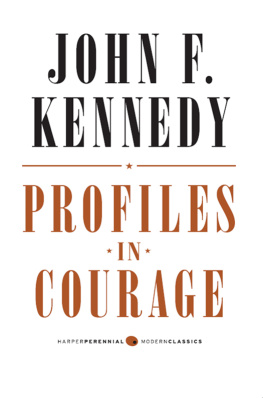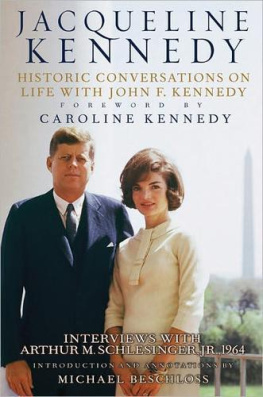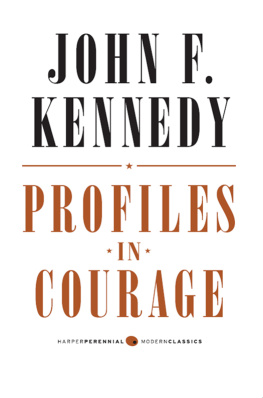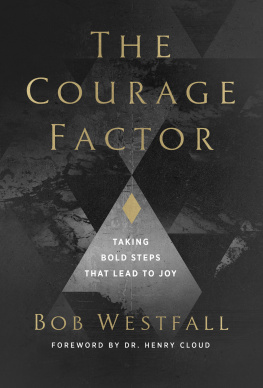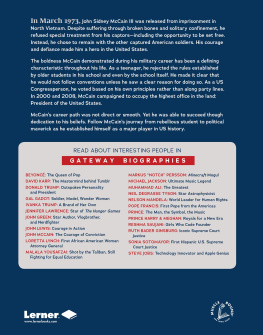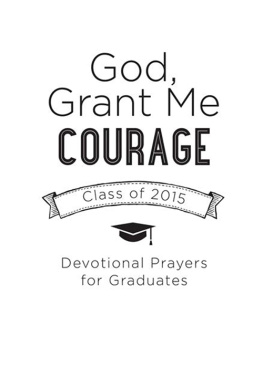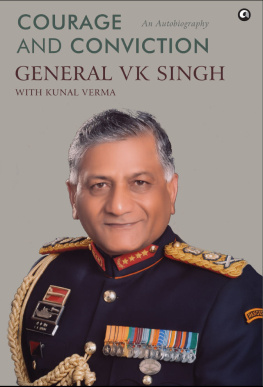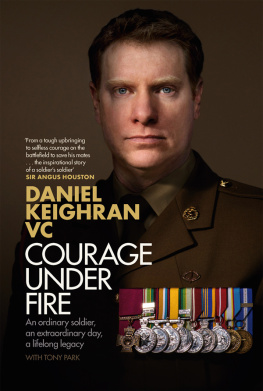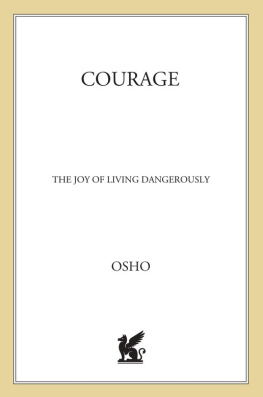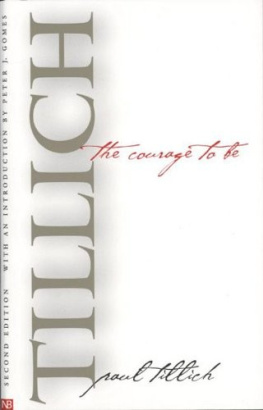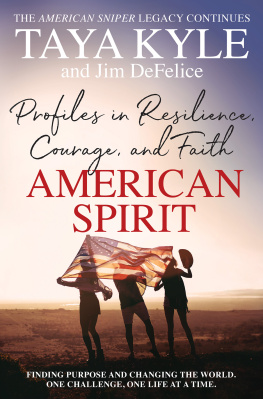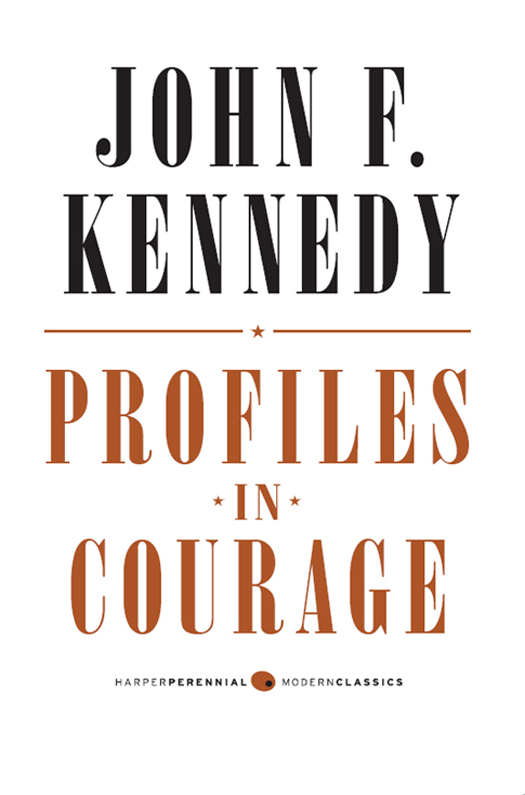To my wife
He well knows what snares are spread about his path, from personal animosity... and possibly from popular delusion. But he has put to hazard his ease, his security, his interest, his power, even his... popularity.... He is traduced and abused for his supposed motives. He will remember that obloquy is a necessary ingredient in the composition of all true glory: he will remember... that calumny and abuse are essential parts of triumph.... He may live long, he may do much. But here is the summit. He never can exceed what he does this day.
Edmund Burkes eulogy of Charles James Fox for his attack upon the tyranny of the East India Company
House of Commons, December 1, 1783
Contents
Guide
My father taught us all that we are never too old or too young for public service. President Kennedys inaugural challenge, Ask not what your country can do for you, ask what you can do for your country, summed up his own life and career, and rings as true today as it did forty years ago. To me, his commanding legacy lives in the thousands of Americans he inspired to get involved in their communities, schools, neighborhoods, the Civil Rights Movement, and the Peace Corps. Our country was transformed by the energy and dedication of a generation. Now it is up to us to redefine that commitment for our own time.
John F. Kennedy began his public service career as a PT-boat commander in the South Pacific in World War II. While on patrol on the night of August 2, 1943, the PT-109 was rammed by a Japanese destroyer, the Amagiri, and exploded into flames, throwing crew members into the burning water. Two were killed and one was burned so badly he couldnt swim. Clutching a strap of the injured mans life jacket in his teeth, Lieutenant Kennedy towed the wounded sailor to the nearest island, three miles away. For the next six days, with little food or water, the men hid, fearing they would be captured by the Japanese. Each evening Kennedy swam through the shark-infested waters to other islands seeking help, until he was spotted by two Solomon Islanders, Eroni Kumana and Biuku Gasa. They picked a coconut, onto which Kennedy carved a message, which they took to the hideout of a nearby Australian coast watcher who arranged rescue. In the summer of 2002 a National Geographic Society expedition found that the legend of John F. Kennedys courage lives on in the faraway Solomon Islands. Using remote-controlled vehicles with underwater cameras, explorer Robert Ballard and his team discovered the sunken PT-109. Expedition members met Eroni Kumana, the man whose simple canoe saved my fathers life and changed the course of history, and his son, John F. Kennedy Kumana.
My fathers bravery earned him the Navy and Marine Corps Medal for extremely heroic conduct, and a Purple Heart for his injuries. It also led to Profiles in Courage. The collision with the Japanese destroyer left him with a spinal injury, which required surgery in the winter of 195455. Elected to the U.S. Senate two years before, my father was interested in understanding the qualities that make a great senator. History was his passion, and he spent his months of recuperation reading the chronicles of his legendary predecessors. To both my parents, history was not a dull, dry affair, but a constant source of inspiration. They believed that there truly are heroes, and we all can learn from their example. My fathers heroes were men and women who were willing to risk their careers to do what was right for our country. Profiles in Courage, published in 1956, tells their stories.
As senator, and as president, in foreign policy and domestic affairs, John F. Kennedy showed a similar kind of courage. In 1962, when he discovered that the Soviets were building offensive nuclear missile bases in Cuba, President Kennedy resisted calls for an immediate air strike and pursued a course of diplomacy that averted the catastrophe of nuclear war. His grace under pressure and his brilliant judgment during the Cuban Missile Crisis led to a new chapter in Soviet-American relations and made it possible to negotiate the first treaty banning the testing of nuclear weapons in the atmosphere, outer space, and underwater. In a speech he gave the summer after the Cuban Missile Crisis, President Kennedy spoke of peace: Let us not be blind to our differencesbut let us also direct attention to our common interests and to the means by which those differences can be resolved. And if we cannot end our differences, at least we can help make the world safe for diversity. For, in the final analysis, our most common link is that we all inhabit this small planet. We all breathe the same air. We all cherish our childrens future. And we are all mortal.
In 1963, when cities across the South were burning with the long-delayed promise of civil rights, and local police attacked the nonviolent civil rights demonstrators with fire hoses and police dogs, President Kennedy put the full power of the federal government on the side of those seeking integration because it was the right thing to do. In a televised address to the nation the same night that he mobilized the Alabama National Guard to admit two black students to the University of Alabama under federal court order, President Kennedy said, We are confronted primarily with a moral issue. It is as old as the Scriptures and is as clear as the American Constitution. The heart of the question is whether all Americans are to be afforded equal rights and equal opportunities, whether we are going to treat our fellow Americans as we want to be treated. If an American, because his skin is dark, cannot eat lunch in a restaurant open to the public, if he cannot send his children to the best public school available, if he cannot vote for the public officials who represent him, if, in short, he cannot enjoy the full and free life which all of us want, then who among us would be content to have the color of his skin changed and stand in his place? Who among us would then be content with the counsels of patience and delay? In the same speech, he announced that he would send to Congress legislation outlawing discrimination in all public facilities, legislation that would become the Civil Rights Act of 1964, passed after his death.
Because my father studied history, and understood the complexity of courage, he understood its simple power as well. He believed that telling the stories of those who act on principle regardless of the cost can help inspire future generations to follow their example. Our nation needs to recognize leadership, to respect it, and to require it of our leaders. John F. Kennedys life and career has inspired millions of people around the world and shown the truth of Andrew Jacksons statement, One man of courage makes a majority.
Our family has honored my fathers commitment to public service by celebrating that commitment in others. In 1989, we established the Profile in Courage Award, presented annually to an elected official who stands fast for the ideals upon which this country was founded, often at great personal risk. These men and women, Republican and Democrat, serving at the local, state, and national level, are the heirs to the eight legendary senators chronicled in this book. Our collective definition of courage has expanded since Profiles in Courage was writtentoday we honor those with the courage to compromise as well as those who stay the course.
Congresswoman Hilda Solis, who grew up in one of Americas most polluted communities, spearheaded the fight for the nations first environmental justice law when she was a young Latina state senator in California. Arguing that toxic and hazardous waste facilities were located near minority and low-income neighborhoods in disproportionate numbers, Solis successfully marshaled support for the landmark bill. Overcoming strong opposition, compromising when she had to, Solis worked with political and business leaders to secure passage of pioneering legislation requiring that all communities be treated fairly with respect to the development, implementation, and enforcement of environmental laws.

